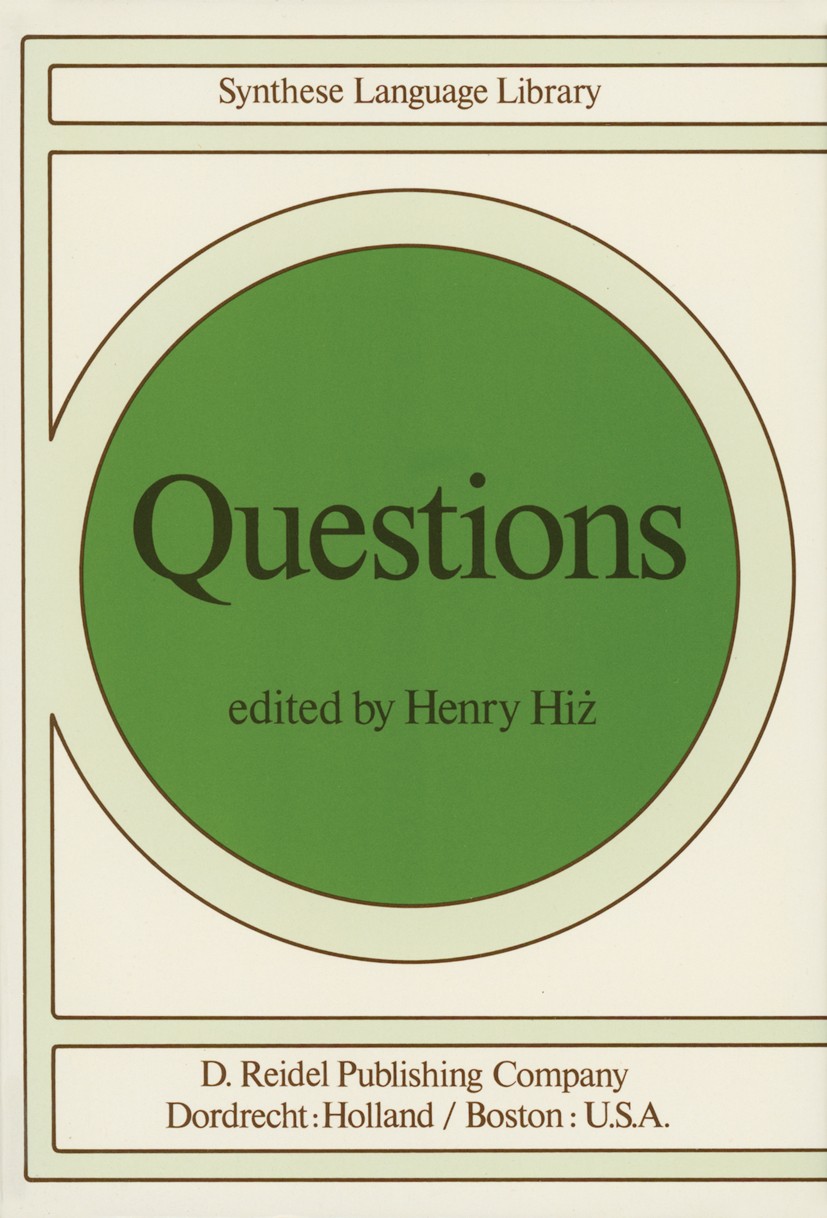| 书目名称 | Questions | | 编辑 | Henry Hiż | | 视频video | http://file.papertrans.cn/782/781826/781826.mp4 | | 丛书名称 | Studies in Linguistics and Philosophy | | 图书封面 |  | | 描述 | To the philosopher, the logician, and the linguist, questions have a special fascination. The two main views of language, that it describes the world, and that it expresses thought, are not directly applicable to questions. Ques tions are not assertions. A question may be apt, sharp, to the point, impor tant, or it may be inappropriate, ambiguous, awkward, irrelevant or irreverent. But it cannot be true or false. It does not have a truth value not just because an utterance like Was the letter long? does not indicate which letter is being talked about. The indicative The letter was not long has the same indeter minacy. In actual context the anaphoric definite article will be resolved both for a question and for an indicative sentence. Contextual resolutions are easily found for most cross-references. A question cannot be either true or it does not describe a state of affairs. Neither does it express false, because thought, because it is an expression of suspended thought, of lack of judge ment. To dress it in other philosophical styles, a question is not a judgment, it is not a proposition, it is not an assertion. A philosopher may try to paraphrase a question as an indicative s | | 出版日期 | Book 1978 | | 关键词 | English; semantic; semantics; syntactic; time; transformation | | 版次 | 1 | | doi | https://doi.org/10.1007/978-94-009-9509-3 | | isbn_softcover | 978-90-277-1035-2 | | isbn_ebook | 978-94-009-9509-3Series ISSN 0924-4662 Series E-ISSN 2215-034X | | issn_series | 0924-4662 | | copyright | D. Reidel Publishing Company, Dordrecht, Holland 1978 |
The information of publication is updating

|
|
 |Archiver|手机版|小黑屋|
派博传思国际
( 京公网安备110108008328)
GMT+8, 2026-1-19 02:32
|Archiver|手机版|小黑屋|
派博传思国际
( 京公网安备110108008328)
GMT+8, 2026-1-19 02:32


